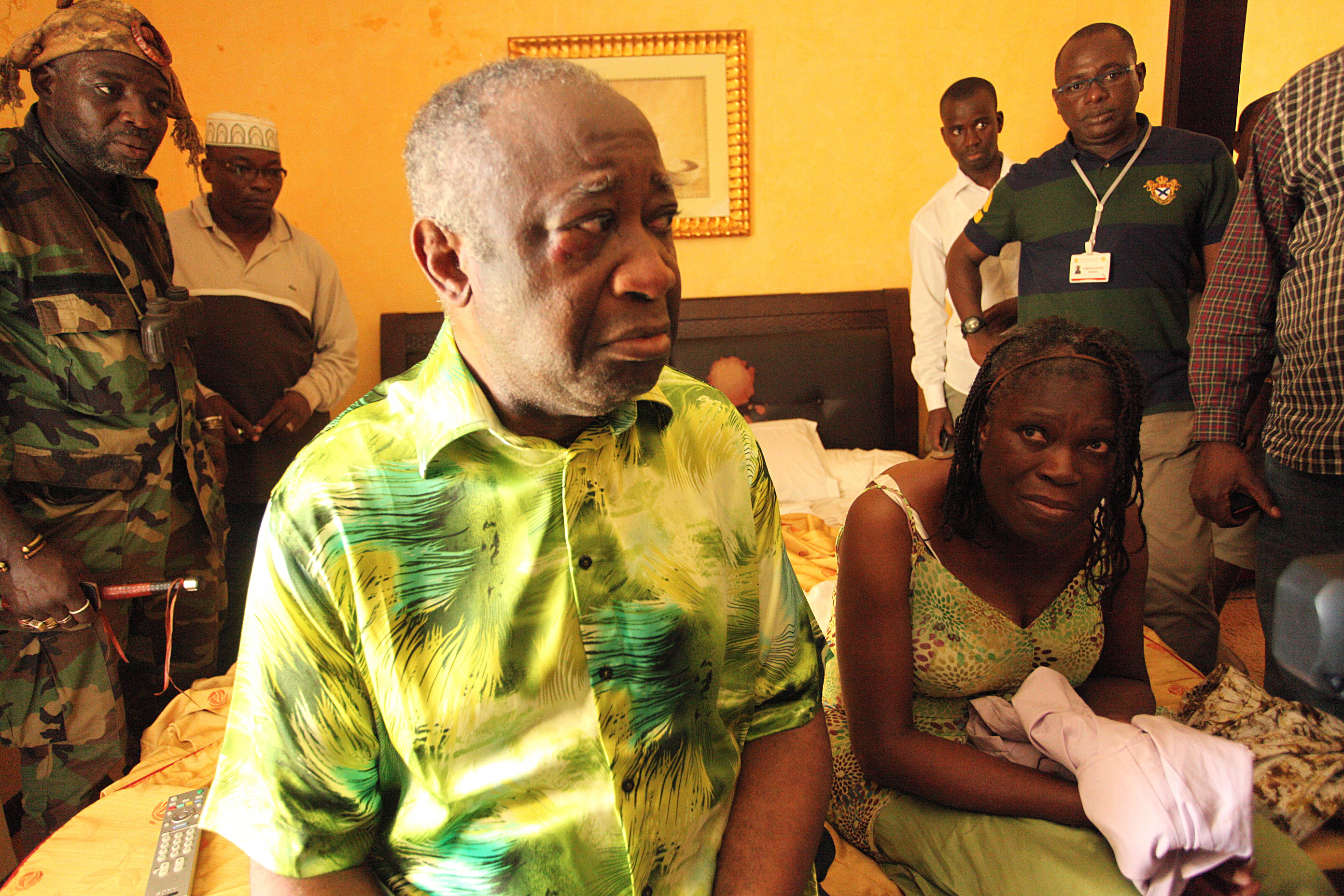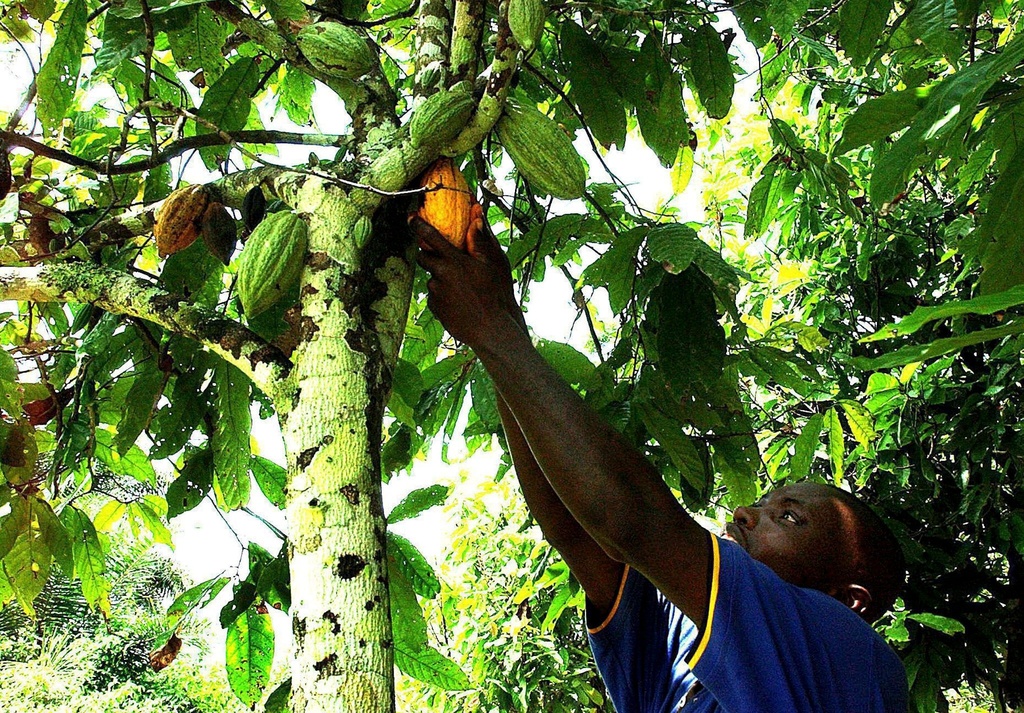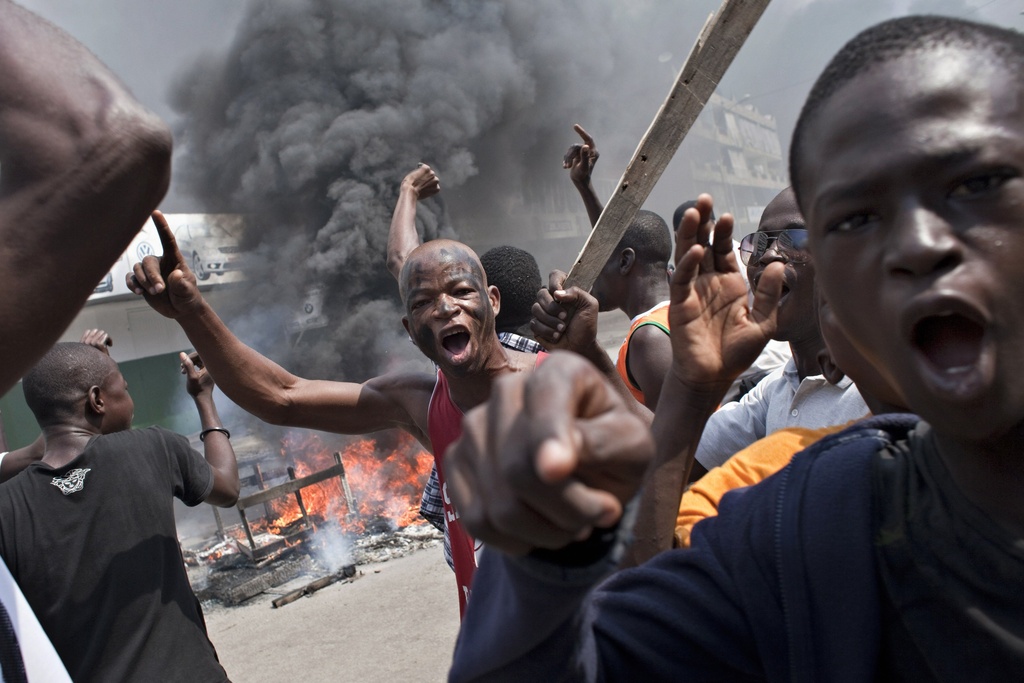Ouattara faces tough “new era of hope”

Ivory Coast's internationally recognised president, Alassane Ouattara, has called for "a new era of hope" after his rival Laurent Gbagbo was arrested.
But he faces a huge task in reuniting a country which has been shattered by civil war and where the humanitarian situation remains critical, especially in western regions and the commercial capital Abidjan.
Gbagbo, who had refused to step down after ten years in power, was detained on Monday in Abidjan by pro-Ouattara forces, backed by French and United Nations forces, ending a stand-off which had lasted months and descended into all-out conflict.
“After more than four months of post-electoral crisis, marked by so many human lives lost, we are finally at the dawn of a new era of hope,” Ouattara said in an address to the nation on radio and television late Monday during which he urged fighters to lay down their arms.
Alain Délétroz, vice-president of the International Crisis Group, welcomed the news that Gbagbo and his clan had been captured alive and their security was not at stake.
“It would’ve been another disaster if their blood had been spilt,” he told swissinfo.ch. “And it was good news that despite the terrible four months for the population and the economy, and the high number of victims, events went much quicker than expected.”
A major challenge now would be making sure the police and gendarmerie respect Ouattara and actually go onto the streets to enforce law and order, he added.
United Nations Secretary-General Ban Ki-moon called on Ouattara to form a national unity government to help reconcile the country’s divisions.
Truth and reconciliation
Ouattara said he intended to establish a truth and reconciliation commission and ended speculation that Gbagbo would be delivered to the International Criminal Court at The Hague by demanding an Ivorian investigation into the former president, his wife and their entourage.
Délétroz said there was a clear demand for justice, and investigations should include the Ivorian Constitutional Council which endorsed Gbagbo’s election victory “against all evidence”.
“But I think the priority for Ouattara should be to investigate and punish those members of his camp responsible for killings that may sap his credibility,” he added.
Ouattara’s legitimacy may be tarnished by accusations that his forces killed hundreds as they swept through the country to reach Abidjan, charges that his aides deny.
Mark Schroeder from the political risk consultancy Stratfor said Ouattara must play a very careful political game “to manage tensions at home and placate the domestic constituents of Gbagbo and so resolve not just the electoral dispute but also in effect a ten-year-long civil war.”
Ongoing humanitarian crisis
But Ouattara faces many other challenges. Aid agencies warned that Monday’s arrest of Gbagbo did not spell the end of the humanitarian crisis in the west African country.
“At the moment, the capture of Laurent Gbagbo does not change the humanitarian situation,” said Elisabeth Byrs, spokeswoman for the UN Office for the Coordination of Humanitarian Affairs.
“We need to have access to Abidjan as fast as possible to help people in this city,” she said, stressing that urgent aid was required.
The UN has increased its emergency appeal for Ivory Coast to $160 million (SFr143 million). Some two million people have been affected by the crisis, including 800,000 who were forced to flee their homes.
Conditions in Abidjan, a city of four million people, and in the west and central regions of the country dramatically deteriorated due to heavy fighting.
Many Abidjan residents were trapped in their homes with little food or water, frequent power cuts and a shortage of medicines as fighting raged for days.
Immense joy
An elderly Ivorian resident from Abidjan’s northern Abobo neighbourhood, told swissinfo.ch by telephone that news of Gbagbo’s arrest had sparked an all-night celebration among neighbours.
“It was an immense joy for everyone as these past few days have been very difficult,” said the man who spoke on condition of anonymity. “For three months we lived with very little food like prisoners in our own homes. We couldn’t go out of the house for fear of a mortar or stray bullet.”
“We celebrated all night – young and old dancing in the street. Today is like the first day of a new year for us.”
It is not yet clear whether pro-Gbagbo militias, who vowed to fight to the bitter end and still control parts of Abidjan, will heed calls to lay down their weapons. Nor is it clear if the 46 per cent of Ivorians who voted for Gbagbo will accept his defeat.
While Abobo district may be calm, residents in the northern Abidjan neighbourhood of Yopougon said armed militias were still roaming the streets there on Monday night. There were also reports of sporadic gunfire in the central Plateau and northern Cocody districts on Tuesday, both bastions of the former Ivorian president.
Ivory Coast was divided into a rebel-controlled north and a loyalist south by a 2002-2003 civil war and was officially reunited in a 2007 peace deal. The long-delayed 2010 presidential election was intended to bring together the nation but instead unleashed months of violence.
The second round of the election pitted the incumbent, Laurent Gbagbo, favoured in the south, against Alassane Ouattara, who enjoys support in the north.
Provisional results released by the Independent Electoral Commission on December 2 gave Ouattara 54% of the vote. However, the President of the Constitutional Council declared the results invalid and announced that Gbagbo had won with 51.5%. Both men subsequently took an oath of office.
Ouattara’s election was recognised by the international community, but Gbagbo refused to step down.
The African Union gave Gbagbo until March 24 to step down, but he did not comply. Pro-Ouattara forces then started to move down from their northern bases towards Abidjan.
Some 150,000 people have fled to neighbouring countries and hundreds were reported killed in post-election violence. Mass killings were carried out by both sides of the conflict, according to Human Rights Watch.
Gbagbo, his wife Simone and entourage were arrested at his personal residence in Abidjan by pro-Ouattara forces on April 11. French troops and United Nations peacekeepers provided crucial support.
The foreign ministry has called for an independent investigation into atrocities committed in Ivory Coast with view to indicting those responsible.
In a statement on Tuesday, the ministry called for restraint from all sides involved in recent fighting in Ivory Coast.
It said the civilian population must be protected and human rights and international law must be respected.
In response to the arrest of former leader Laurent Gbagbo in Abidjan on Monday, the ministry said Switzerland had recognised Alasanne Ouattara as the winner of last November’s presidential elections and had called on Mr Gbagbo several times to step down.
On January 19, the Swiss government moved to block any assets in Switzerland belonging to Gbagbo or his associates.

In compliance with the JTI standards
More: SWI swissinfo.ch certified by the Journalism Trust Initiative













You can find an overview of ongoing debates with our journalists here . Please join us!
If you want to start a conversation about a topic raised in this article or want to report factual errors, email us at english@swissinfo.ch.